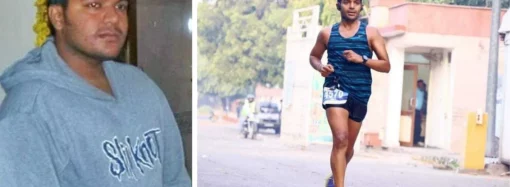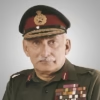He taught India that true leadership lies not in commanding from above but in walking alongside.
In the annals of Indian military history, few names shine as brightly as that of Field Marshal Sam Hormusji Framji Jamshedji Manekshaw. A legend in uniform, he was not just the first Indian Army officer to be promoted to the five-star rank of Field Marshal, but also a towering figure whose leadership, wit, and unwavering sense of duty forever altered the destiny of a nation.

Born on April 3, 1914, in Amritsar, Sam Manekshaw was never one to tread the ordinary path. He joined the Indian Military Academy in 1932 as part of its first batch, a step that would set him on a course to etch his name into the heart of India’s story. From the outset, he distinguished himself not just with his competence but also with a sharp tongue and a sharper mind. During World War II, he served in Burma and was grievously wounded in battle.
When the surgeon attending to him asked why he wanted to live, he reportedly replied, “Because my country needs me.” That spirit would come to define his entire life.
By 1971, the subcontinent was on the brink of upheaval. East Pakistan (now Bangladesh) was boiling with rebellion under the brutal suppression by West Pakistan. Refugees poured into India by the millions. Amid the growing crisis, the political pressure was mounting. But Prime Minister Indira Gandhi had a man she could trust at the helm of the Indian Army—Sam Manekshaw.

When Gandhi asked him in April 1971 if the Indian Army was ready to go to war immediately, Sam’s answer was a firm “No.” He didn’t mince words. He laid out the military unpreparedness, the monsoon’s impact on troop movement, and the necessity of meticulous planning. Many would have crumbled under the pressure or given a more politically pleasing answer. But Sam was not like most men. His honesty and strategic foresight earned him the Prime Minister’s respect and, more importantly, the time he needed.
Over the next few months, Manekshaw masterminded one of the most brilliant military campaigns in modern history. By December, the Indian Army was ready. Under his leadership, Indian forces launched a swift, coordinated attack that cut through enemy defences like a surgeon’s scalpel. Within just 13 days—one of the shortest wars in history—India had achieved a decisive victory. Over 90,000 Pakistani soldiers surrendered, the largest military surrender since World War II. And from the ashes of conflict, the new nation of Bangladesh was born.

But it wasn’t just his military brilliance that won hearts. It was his humanity. Sam treated soldiers under his command like family. He walked among them, talked to them, and inspired them. His confidence was contagious.
In one famous incident during the 1971 war, when a junior officer asked what would happen if he died in action, Sam replied, “You will be doing me proud. And if you don’t die, I’ll buy you a drink.”
Charismatic and sharp-witted, Manekshaw was equally comfortable in the trenches and the drawing rooms of power. His trademark humour became legendary. When asked what would have happened if he had joined the Pakistani Army after partition, he quipped, “Then you would have had a Pakistani victory instead.” But beneath the wit lay a man of unshakable principle. He never played politics, never bowed to pressure, and never compromised on his duty to the nation and his men.
In 1973, in recognition of his service and the historic victory, he was conferred the rank of Field Marshal—an honour no Indian officer had received before. Yet, in his retirement, he lived simply in Coonoor, Tamil Nadu, away from the glare of power. When asked how he wanted to be remembered, he simply said, “As a soldier who did his duty honestly.”
Field Marshal Sam Manekshaw passed away on June 27, 2008, but his story remains a beacon of courage, integrity, and vision. He taught India that true leadership lies not in commanding from above but in walking alongside. That strength isn’t in bluster but in quiet resolve. And that victory belongs not just to armies, but to nations that dare to trust men of honour.

In a time when the world often seeks heroes in fleeting headlines, Sam Manekshaw reminds us that real heroes wear their courage not on their sleeves, but in their souls.
And that is why he will forever remain… the Lion of the Battlefield.






























Leave a Comment
Your email address will not be published. Required fields are marked with *